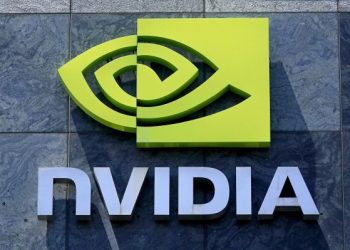Shell builds custom LLM with NVIDIA NeMo to boost innovation and streamline information access across its chemistry and R&D operations. This domain-adapted AI chatbot enhances employee productivity, speeds up decision-making, and reduces research time.
Shell operates in a highly technical environment, where teams rely on massive volumes of scientific data. However, locating the right information can be time-consuming. To solve this, Shell collaborated with NVIDIA to build a specialized large language model using NVIDIA NeMo™, NeMo Curator, and the NeMo Framework.
Initially, Shell collected more than 300,000 chemistry-related technical documents. Using NeMo Curator, the company applied advanced preprocessing steps, including duplicate removal, language filtering, and domain classification. As a result, the dataset was refined to 154,000 high-quality documents suited for LLM training.
After preparing the data, Shell implemented domain-adaptive pretraining (DAPT) and supervised fine-tuning (SFT). DAPT helped the model deeply understand chemical terminology and internal context. Meanwhile, SFT further optimized the model’s responses using carefully labeled examples. Importantly, Shell leveraged NeMo’s parallelism techniques to cut training time by 20% compared to other open-source frameworks.
Consequently, the fine-tuned model showed a 30% improvement in accuracy over its non-adapted version. This leap in performance made it possible for engineers to retrieve domain-specific insights faster and more reliably. As a result, Shell’s staff could focus more on solving technical problems and less on searching databases.
Furthermore, Shell’s LLM improves document analysis and enhances interdepartmental collaboration. It adapts over time based on real-world usage, continuously learning to better serve the organization’s evolving needs. Because of this flexibility, the AI system is not only a search tool—it’s a knowledge assistant.
Looking ahead, Shell intends to expand the training dataset and diversify the model’s evaluation benchmarks. Moreover, the company is actively exploring multimodal AI capabilities, which would allow the chatbot to process not just text but also images and videos. This could transform how teams interpret diagrams, chemical reactions, and experimental visuals.
These future enhancements will provide even more context-rich and accurate information. Therefore, Shell’s custom LLM will play a central role in enabling faster decisions, better collaboration, and increased innovation across its global operations.
By choosing to build its own model using NVIDIA NeMo, Shell gains full control over performance, security, and scalability. This ensures that the solution fits its unique business needs while maintaining the highest standards in accuracy and data privacy.
Shell’s approach is an example of how companies can move beyond generic AI solutions. When LLMs are trained on domain-specific data, they deliver targeted value that off-the-shelf tools simply cannot. Accordingly, other organizations in data-intensive sectors may follow Shell’s lead to build tailored AI systems for their own verticals.
READ: NVIDIA Powers EU’s $200B Push for Sovereign AI Factories








